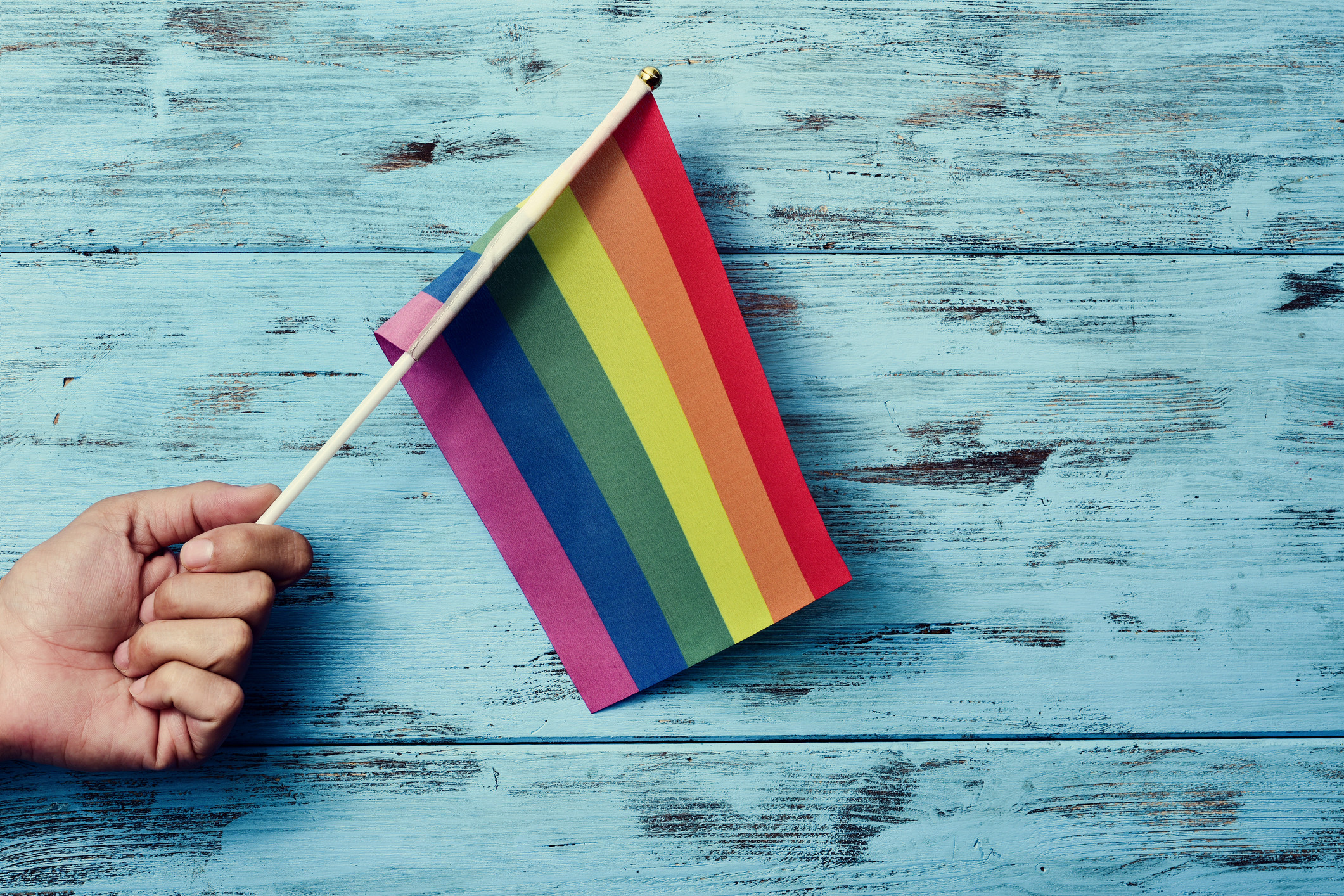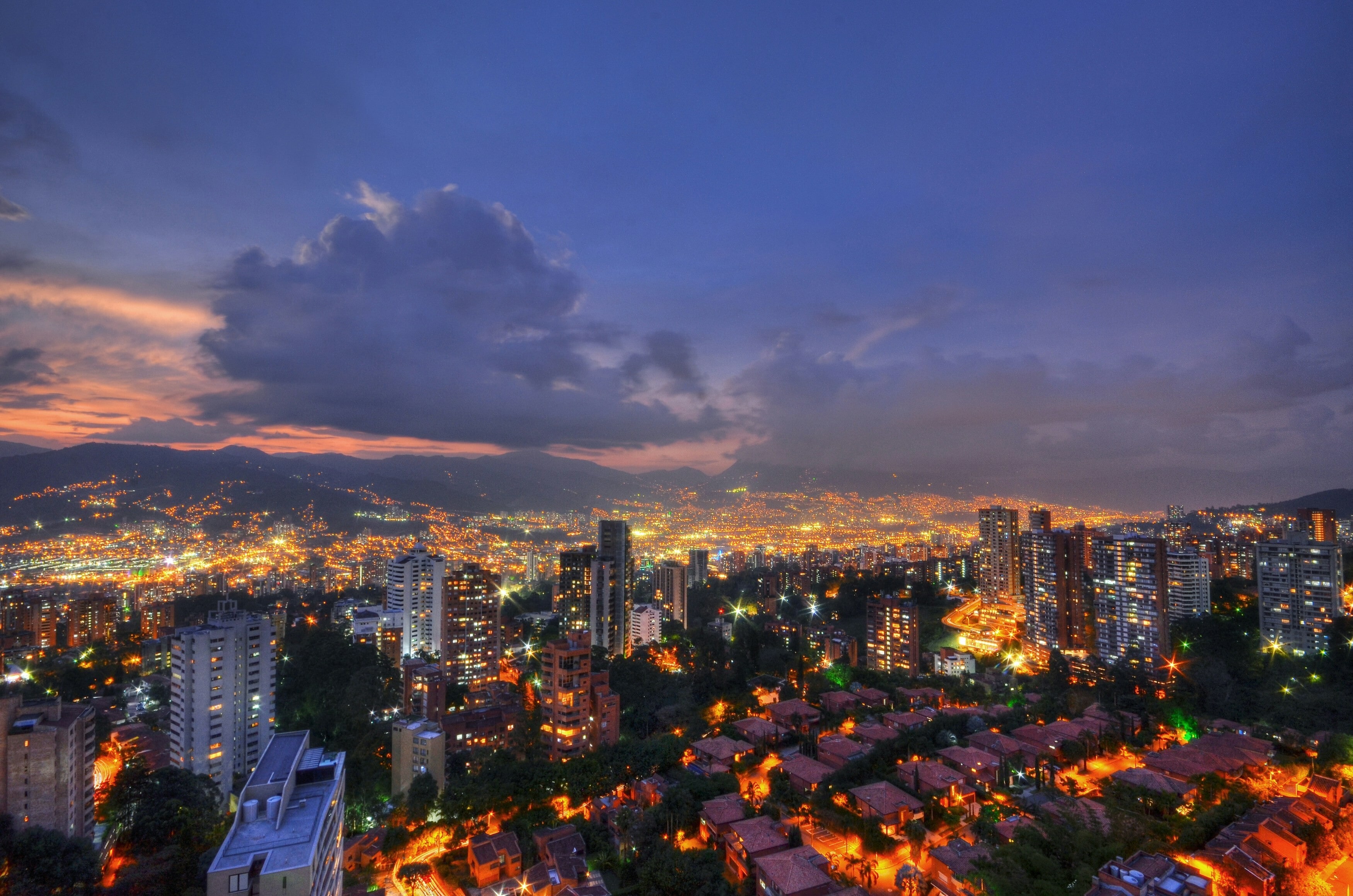Which cities perform well for LGBTQ+ inclusion?

Wealthier cities tend to be more LGBTQ+ inclusive.
Image: Unsplash/Christian Lue
Stay up to date:
LGBTI Inclusion
Listen to the article
- The Open For Business 2022 City Ratings ranks 145 cities based on their economic performance and inclusion of LGBTQ+ communities.
- Amsterdam, Boston and London are among the world’s most LGBTQ+ inclusive and innovative cities.
- Cities including Nairobi in Kenya, Chennai in India and Santiago in Chile are improving their LGBTQ+ performance.
Inclusive cities are more competitive, a new report suggests.
The Open For Business 2022 City Ratings is a ranking of 145 cities based on their economic performance and inclusion of LGBTQ+ communities – lesbian, gay, bisexual, transgender, queer (or questioning) and others.
Overall, wealthier cities tend to be more LGBTQ+ inclusive, the authors say.
Here are 10 other key findings.
Netherlands’ capital is LGBTQ+ world leader
Amsterdam is the world’s most open for business city for the second year in a row. The Netherlands capital is a “strong global beacon” for LGBTQ+ inclusion and has the “most welcoming social attitudes” towards the LGBTQ+ community of any city in the 2022 ratings, according to the authors. There are very few legal barriers for LGBTQ+ people in Amsterdam. It is illegal to discriminate against LGBTQ+ people in employment or access to goods and services. Amsterdam’s business strengths include an “exceptional” performance in entrepreneurship and a “booming” start-up scene.
Massachusetts has the top LGBTQ+ city in the US
Boston is the only city in the United States with a triple-A rating in the report. It is one of several cities and states in the United States that have banned conversion therapy. This is typically psychological, medical or faith-based therapy designed to change a person’s sexual orientation or gender identity. The United Nations compares these practices to torture. Boston ranked second globally on innovation and has the highest number of elite universities per capita of any city in the ratings.
London is a strong LGBTQ+ inclusion supporter
London also scores a top AAA rating in the index. The British capital is known as a “stalwart supporter” of LGBTQ+ inclusion and equality, according to the report. London has some of the highest levels of innovation and human capital – skills and knowledge – out of the 145 cities included in the ratings. The UK government, however, announced in April 2022 that transgender people would not be included in its long-awaited ban on conversion therapy. This could have “negative repercussions” for London’s AAA rating in the future, the authors say.

Nairobi moves up the rankings for LGBTQ+ inclusion
In Africa, Kenya’s capital Nairobi has moved up the rankings for the first time. While the city is categorized “not open for business”, this rise has been driven by an increased entrepreneurship score and some small improvements in LGBTQ+ inclusion. Kenya became the first country in Africa to include intersex people in the national census. There are also “improving social attitudes” towards the LGBTQ+ community. Same-sex acts are still criminalized, though.
India sees LGBTQ+ progress in Chennai
In the Asia Pacific region, Chennai in India has seen “a lot of firsts” for inclusion and innovation, the 2022 rankings notes. For example, the state where the city is based, Tamil Nadu, became the first in India to ban conversion therapy in June 2021. The court also ruled that police in the state should be punished if they harass members of the LGBTQ+ community. Chennai has created India’s first city innovation officer role and has built an innovation hub to foster and promote development.
Perth top of Australian LGBTQ+ rankings
In Australia, Perth is the only city to move up in this year’s rankings, achieving a high AA rating. The most notable change was Perth’s adoption in late-2021 of its first plan for the LGBTQ+ community, including intersex and asexual people. This outlines actions in seven key areas such as safety, education, homelessness and healthcare. The city is aiming to help businesses with LGBTQ+ inclusion training. Perth also saw improvements across most economic indicators.
Tallinn is top in Central and Eastern Europe
Estonia’s capital Tallinn is the highest ranked city in Central and Eastern Europe. Attitudes toward LGBTQ+ people are showing signs of progress, the authors say. Estonia is also one of the only regional members of the Equal Rights Coalition, an intergovernmental group dedicated to protecting LGBTQ+ rights. However, marriage equality has yet to become a legal right, nor has conversion therapy been banned. The city is the “clear regional leader” in innovation and start-up activity, with the highest number of start-ups per head of any European country – 1,107 per million residents.
Latin America makes progress on LGBTQ+ rights
Santiago, Mexico City and San José – the capitals of Chile, Mexico and Costa Rica – are among cities in Latin America categorized as “partially inclusive and competitive”. COVID-19 squeezed the cities’ economic competitiveness scores. But LGBTQ+ inclusion was a “key ingredient” that stopped them falling in the rankings. San José and Costa Rica allowed same-sex couples to marry in May 2020. Santiago introduced marriage equality in late 2021 and in March 2022 allowed same-sex couples to get married and jointly adopt children. Mexico City became the first place in Mexico to ban conversion therapy, having already legalized marriage equality in 2009.
Israeli city is an LGBTQ+ leader
Tel Aviv in Israel leads the Africa and Middle East region with recent progress on LGBTQ+ rights, with strong legal protections for the LGBTQ+ community. Israel banned medical professionals from conversion therapy in February 2022, but transgender people were not included. Tel Aviv also has the region’s highest scores in entrepreneurship, innovation and human capital. But social attitudes towards LGBTQ+ people have fallen across Israel since 2000.
Abu Dhabi and Dubai are poor for LGBTQ+ inclusion
In the Middle East, Abu Dhabi and Dubai in the United Arab Emirates both have “one of the lowest LGBTQ+ inclusion scores” of all cities included in the ratings. National laws punish same-sex intimacy with the death penalty, while the penalty in regional laws is 14 years in prison. Transgender people are not able to change their legal gender on official documents. “This criminalization could have long-term implications for Abu Dhabi’s and Dubai’s competitiveness and ability to attract talent,” the authors say.
Globally, the Open For Business 2022 City Ratings show more cities have slipped down the ratings than have risen.
This is concerning, the authors say, and means there are “millions of people around the world who feel less safe, who face more discrimination, harassment and violence, because of their sexual orientation or gender identity”.
Open For Business, a coalition of global companies dedicated to LGBT+ inclusion, hopes business leaders will use the ratings to improve inclusive policymaking.
The City Ratings were launched in 2018 and are published in partnership with professional services firm Accenture and strategic advisory company Brunswick.
What is the Forum doing to boost inclusion for LGBTI people?
Accept our marketing cookies to access this content.
These cookies are currently disabled in your browser.
Don't miss any update on this topic
Create a free account and access your personalized content collection with our latest publications and analyses.
License and Republishing
World Economic Forum articles may be republished in accordance with the Creative Commons Attribution-NonCommercial-NoDerivatives 4.0 International Public License, and in accordance with our Terms of Use.
The views expressed in this article are those of the author alone and not the World Economic Forum.
Forum Stories newsletter
Bringing you weekly curated insights and analysis on the global issues that matter.
More on Urban TransformationSee all
Luis Antonio Ramirez Garcia
August 11, 2025
Michael Fröbel and Stanislas Hillen
August 8, 2025
Jeff Merritt and Vivian Brady-Phillips
July 25, 2025
Muhammad Hassan Dajana and James Balzer
July 22, 2025
Olivia Nielsen
July 16, 2025







